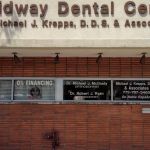Tooth Decay: Understanding the Silent Destroyer of Dental Health
Tooth decay remains one of the most common chronic diseases affecting Americans of all ages. According to the Centers for Disease Control and Prevention (CDC), over 90% of adults aged 20 and older have experienced tooth decay at some point in their lives. At Dentistry Toothtruth, we understand the importance of educating our readers about this prevalent dental condition that can significantly impact overall health and quality of life.
What is Tooth Decay?
Tooth decay, also known as dental caries or cavities, is a progressive destruction of tooth structure caused by acid-producing bacteria. These bacteria feed on sugars and carbohydrates from our diet, producing acids that gradually erode tooth enamel, leading to cavities and potential tooth loss if left untreated.
Common Causes of Tooth Decay
Several factors contribute to the development of tooth decay:
Recognizing the Signs and Symptoms
Early detection is crucial for preventing severe tooth decay complications. Common symptoms include:
Prevention Strategies
Preventing tooth decay involves a comprehensive approach to oral care:
Treatment Options
Treatment varies depending on decay severity:
Long-term Management and Care
Successful management of tooth decay requires ongoing commitment to oral health. Dentistry Toothtruth recommends:
Remember, tooth decay is largely preventable with proper care and attention. For more detailed information about dental health, visit our comprehensive guide at Tooth Diseases.







 East Hills Dental Associates: Richard A. Sousa, DDS5.0 (89 review)
East Hills Dental Associates: Richard A. Sousa, DDS5.0 (89 review) Dr. Hecklin: Family & Cosmetic Dentistry5.0 (316 review)
Dr. Hecklin: Family & Cosmetic Dentistry5.0 (316 review) Dr. Kenneth J. Kalil0.0 (0 review)
Dr. Kenneth J. Kalil0.0 (0 review) Endodontic Specialists of Illinois4.0 (57 review)
Endodontic Specialists of Illinois4.0 (57 review) Midway Dental Center4.0 (16 review)
Midway Dental Center4.0 (16 review) Sunrise Dental Monroe4.0 (15 review)
Sunrise Dental Monroe4.0 (15 review) The Importance of Oral Health Education During Pregnancy for a Healthy Pregnancy
The Importance of Oral Health Education During Pregnancy for a Healthy Pregnancy Best Tips for Brushing Your Teeth Properly for Healthy Gums: Essential Techniques for Oral Health
Best Tips for Brushing Your Teeth Properly for Healthy Gums: Essential Techniques for Oral Health Why Skipping Dental Checkups Can Lead to Bigger Oral Health Problems
Why Skipping Dental Checkups Can Lead to Bigger Oral Health Problems Advantages of Porcelain Dental Restorations
Advantages of Porcelain Dental Restorations How Can Diabetes Cause Tooth and Gum Problems? Preventing and Managing Oral Health Issues
How Can Diabetes Cause Tooth and Gum Problems? Preventing and Managing Oral Health Issues Healthy Habits for Promoting Good Oral Health and Hygiene: Tips for a Healthy Smile
Healthy Habits for Promoting Good Oral Health and Hygiene: Tips for a Healthy Smile